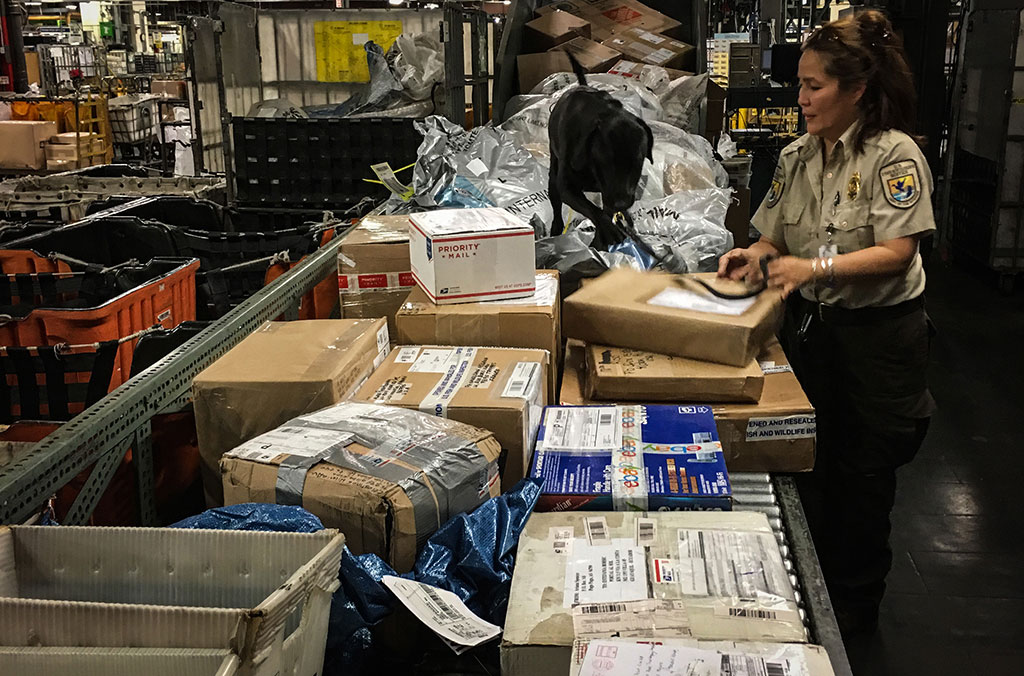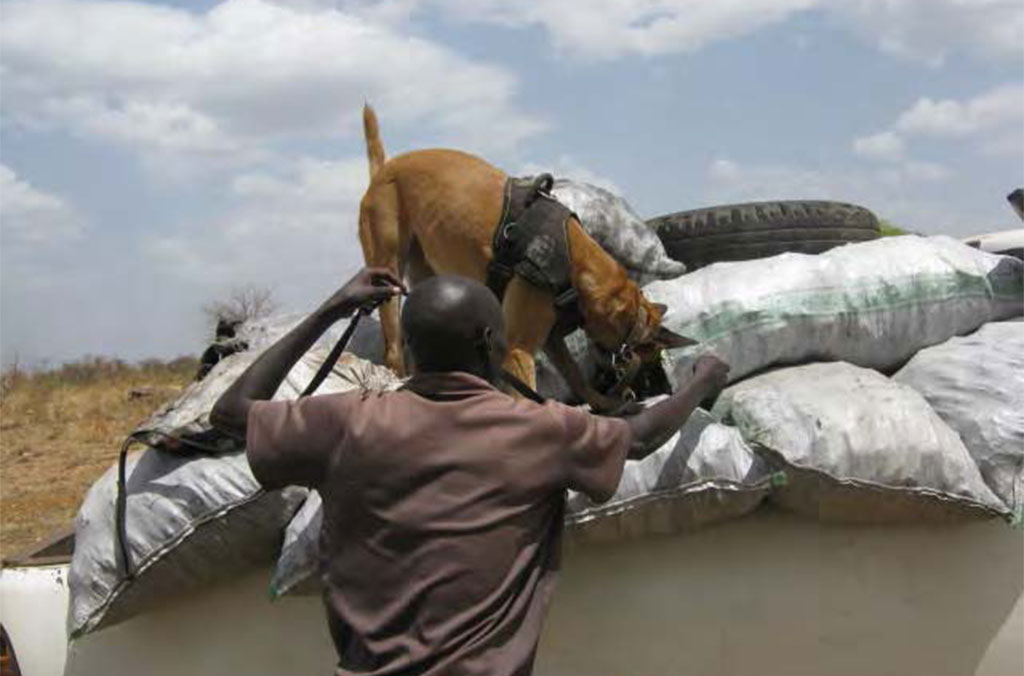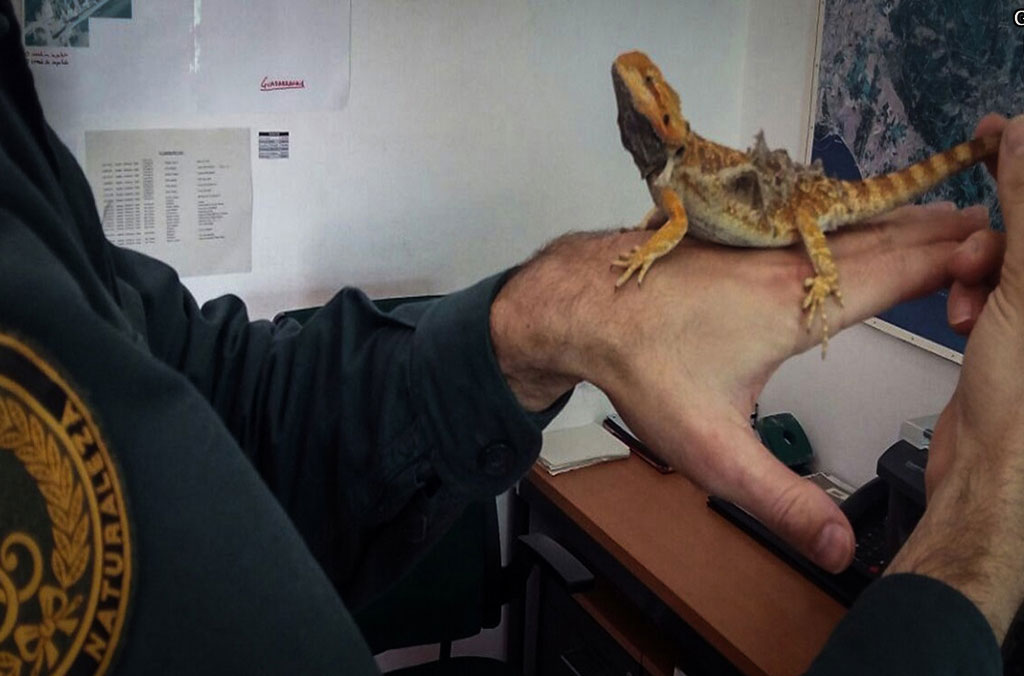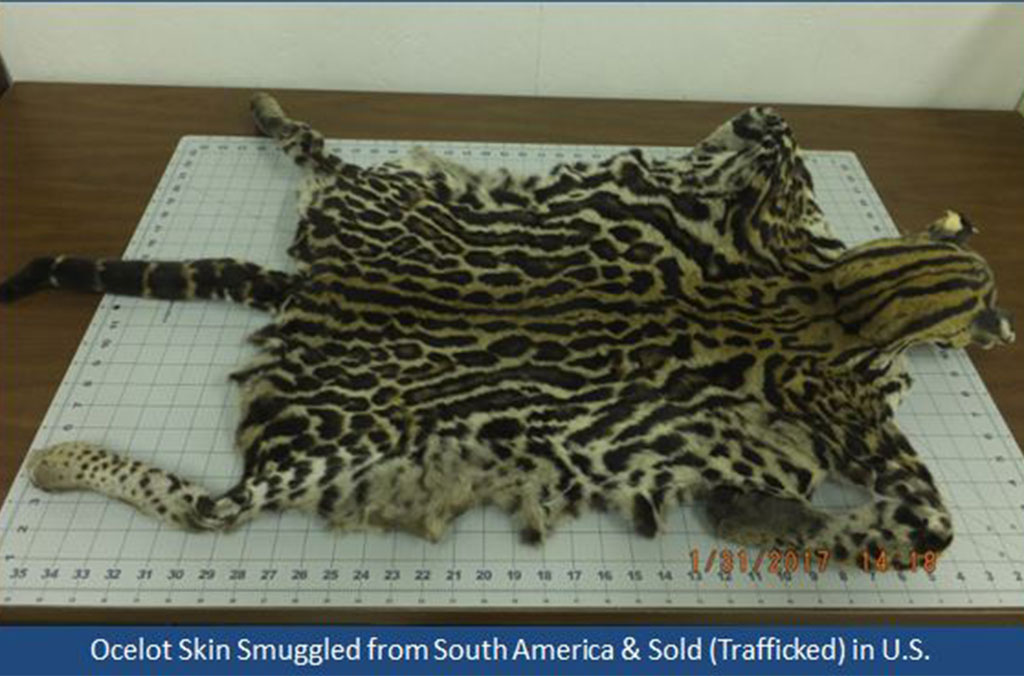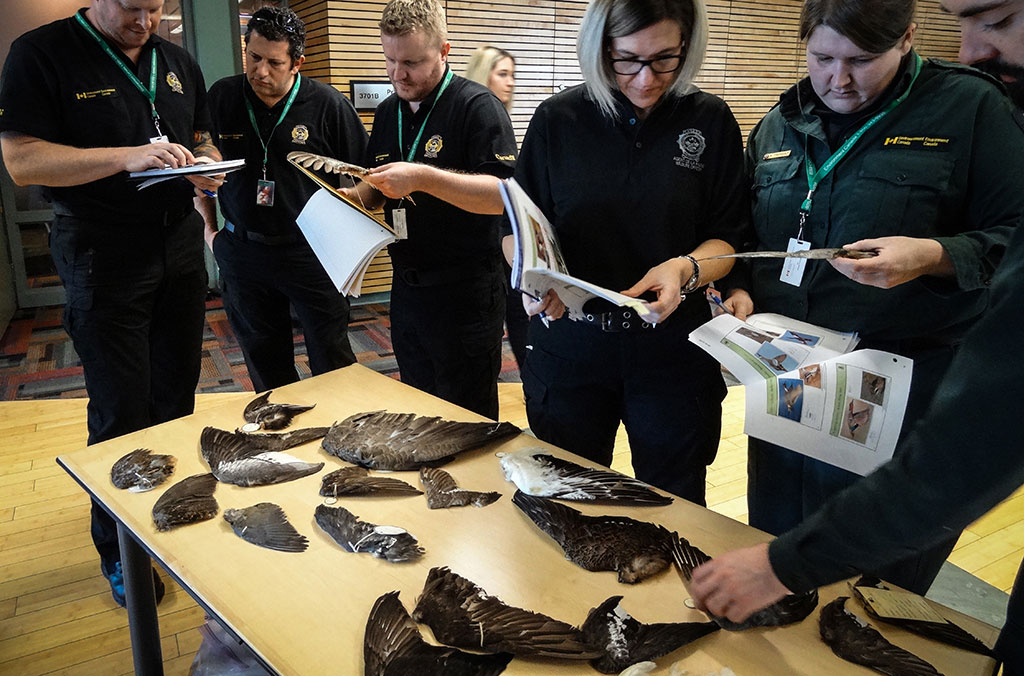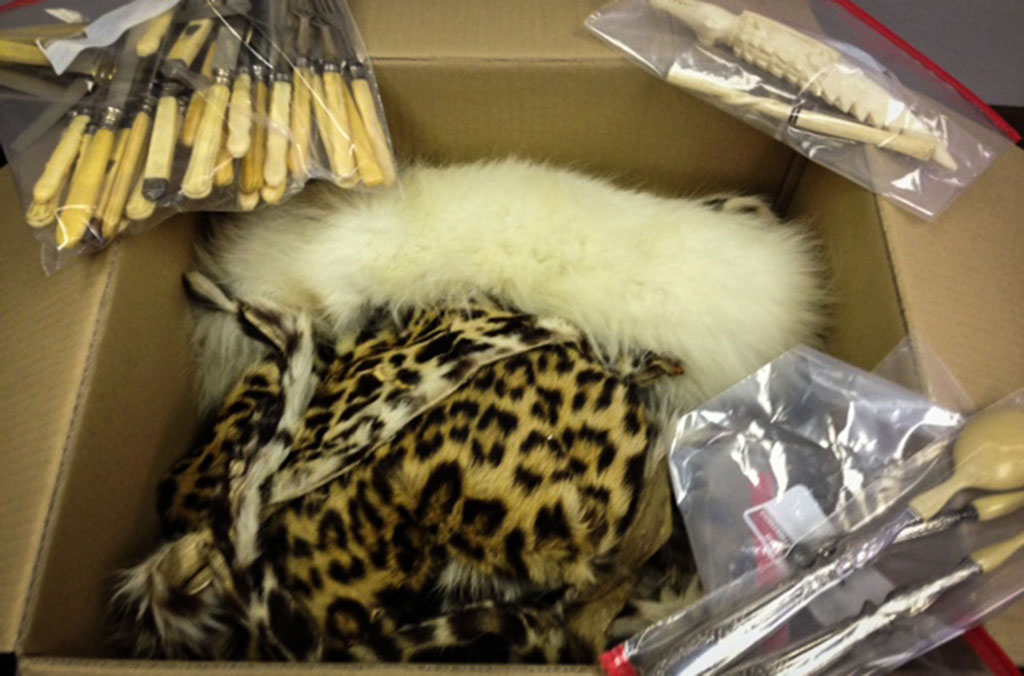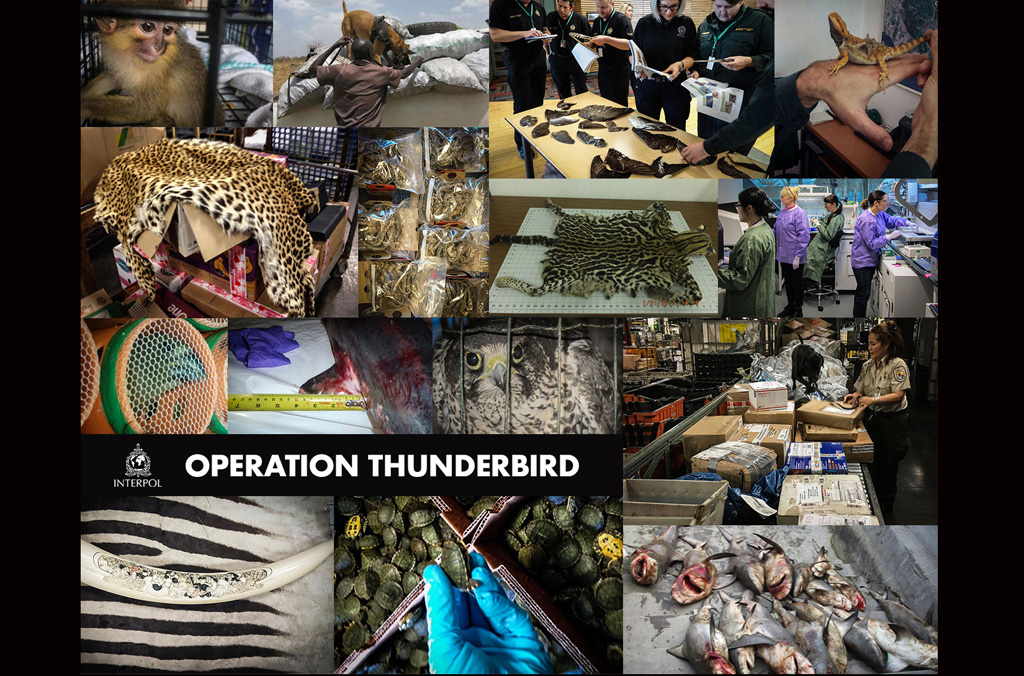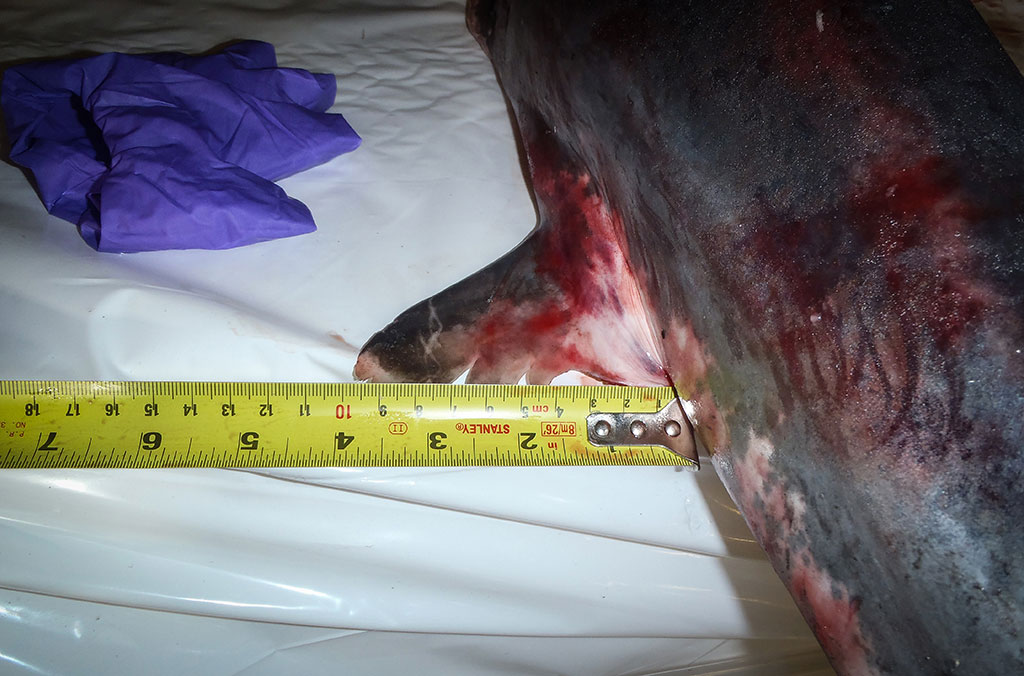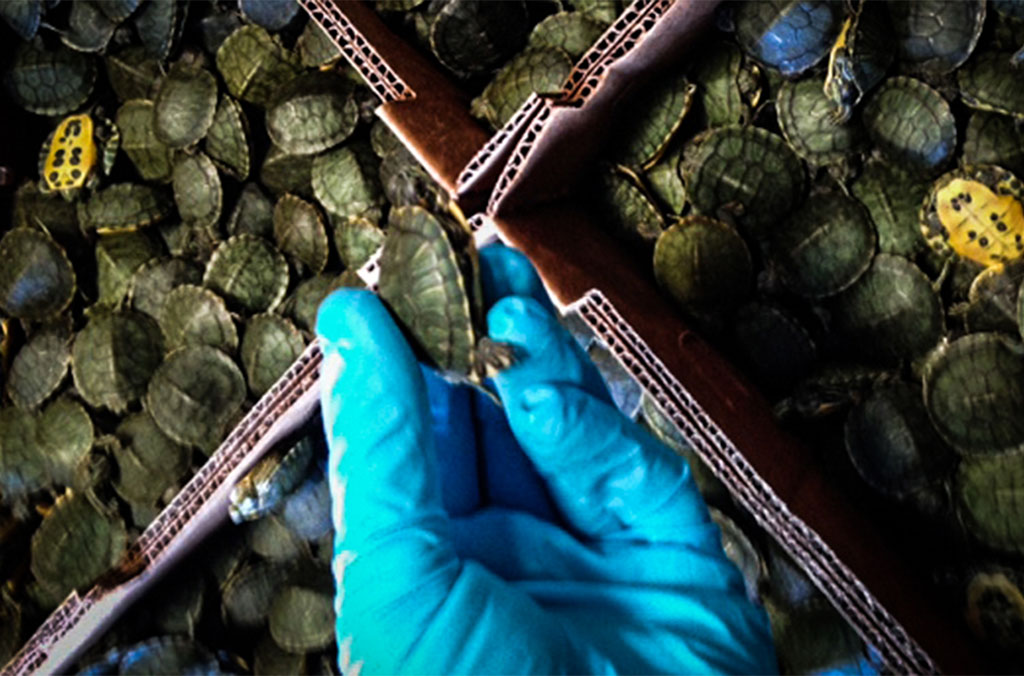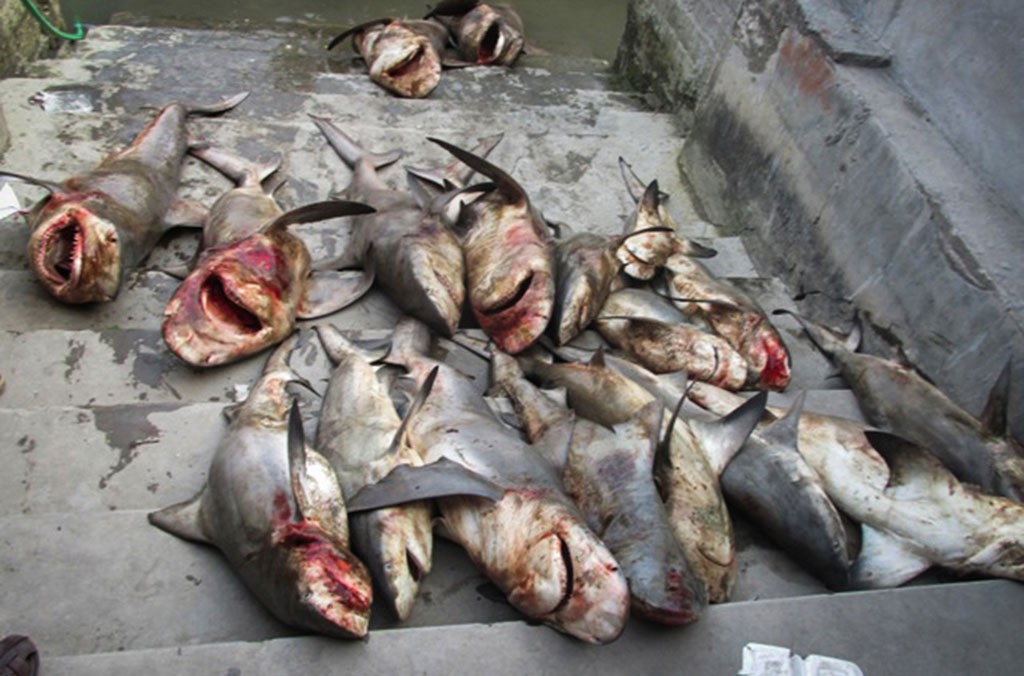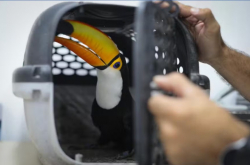LYON, France – A global operation tackling the illegal trade in wildlife and timber has resulted in the identification of nearly 900 suspects and 1,300 seizures of illicit products worth an estimated USD 5.1 million.
The results, announced ahead of World Wildlife Day (3 March), mark INTERPOL’s ongoing commitment to supporting its 190 member countries in combating all types of environmental crime.
Codenamed Thunderbird, the operation involved police, customs, border agencies, environment, wildlife and forestry officials from 49 countries and territories, and resulted in a range of seizures including;
- More than 300 tonnes of wood and timber
- More than 5,200 birds
- More than 2,800 reptiles including at least 2000 turtles and tortoises
- 13 wild cats (including six dead bodies)
- More than 3.9 tonnes of pangolin scales
- More than 50kg of raw and processed ivory
- 25 tonnes of various animal parts, including meat, horns and feathers
- More than 22,000 derivatives and processed products such as medicines/ornaments/carvings
Among the more than 14.3 tonnes of marine wildlife seized were 180 dead seahorses which had been concealed in snack boxes discovered by US authorities, with additional seahorse seizures also made in Mozambique.
In Hong Kong, China, officers seized 1.3 tonnes of red sandalwood hidden in a container shipped from Malaysia.
Intelligence was gathered and shared ahead of the operation to assist in identifying specific targets and areas for action. These included wildlife and forest crime hotspots and bottlenecks where checkpoints could be established, in addition to operations at airports and national borders.
Cars, trucks, boats and cargo transporters suspected of moving illicit products were also targeted with searches carried out by officers, specialist sniffer dogs and x-ray scanners.
Scrap yards, taxidermy shops, garages, pet fairs, warehouses and health clinics were also targeted during the operation, resulting in seizures, arrests and general information gathering. Websites and social media offering wildlife products were also the focus of investigations.
The three-week (30 January – 19 February) operation has so far resulted in 390 investigations which have already led to 88 individuals being jailed with terms ranging from several days to seven years.
“Wildlife trafficking has surged in recent years, generating billions in illicit profits. Simply put, criminals are helping themselves to the environment’s precious resources without a care for the cost to our planet,” said INTERPOL Secretary General Jürgen Stock.
“The success of this operation is a demonstration of what can be achieved by transnational law enforcement collaboration, and the resolve of countries to tackle environmental crime. INTERPOL also remains committed to tackling wildlife and forest crime across the globe, to protect today’s resources for tomorrow’s generations,” concluded the INTERPOL chief.
“The WCO commends the continuous initiatives of the Customs community and their law enforcement counterparts to secure the integrity of the global supply chain against the illegal movements of wildlife and timber products. Operation Thunderbird bears proof of the effectiveness of international cooperation and all role-players are encouraged to continue with their relentless efforts in this regard,” said the Secretary General of the World Customs Organization (WCO), Dr Kunio Mikuriya.
Led by INTERPOL, in close cooperation with ICCWC partners - the Secretariat of the Convention on International Trade in Endangered Species of Wild Fauna and Flora (CITES), WCO, the United Nations Office on Drugs and Crime and the World Bank - the INTERPOL Wildlife Crime Working Group, the US Fish and Wildlife Service, the UK Border Force and Environment Canada, Operation Thunderbird was organized at meetings held alongside the 17th meeting of the Conference of the Parties to CITES (CoP17).
“Illicit wildlife trafficking must be tackled on the frontline and the officers who serve to protect wildlife need our full support. This well focussed operation brought together officers who are working in countries and regional enforcement bodies to tackle wildlife crime and we welcome the excellent results and thank all involved for their efforts. It clearly shows what can be achieved through coordinated efforts to tackle illicit wildlife trafficking,” said John E. Scanlon, CITES Secretary General.
The intelligence and data collected from the operation will be compiled, analysed and used as guidance in future national, regional and international enforcement efforts.
A joint INTERPOL – UN Environment report published in June 2016, estimated the value of all forms of environmental crime - including the illegal trade in wildlife, corporate crime in the forestry sector, the illegal exploitation and sale of gold and other minerals, illegal fisheries, the trafficking of hazardous waste and carbon credit fraud - as between USD 91-258 billion. However, these figures are expected to increase with current estimates showing environmental crime growing at a rate of five to seven per cent annually.




